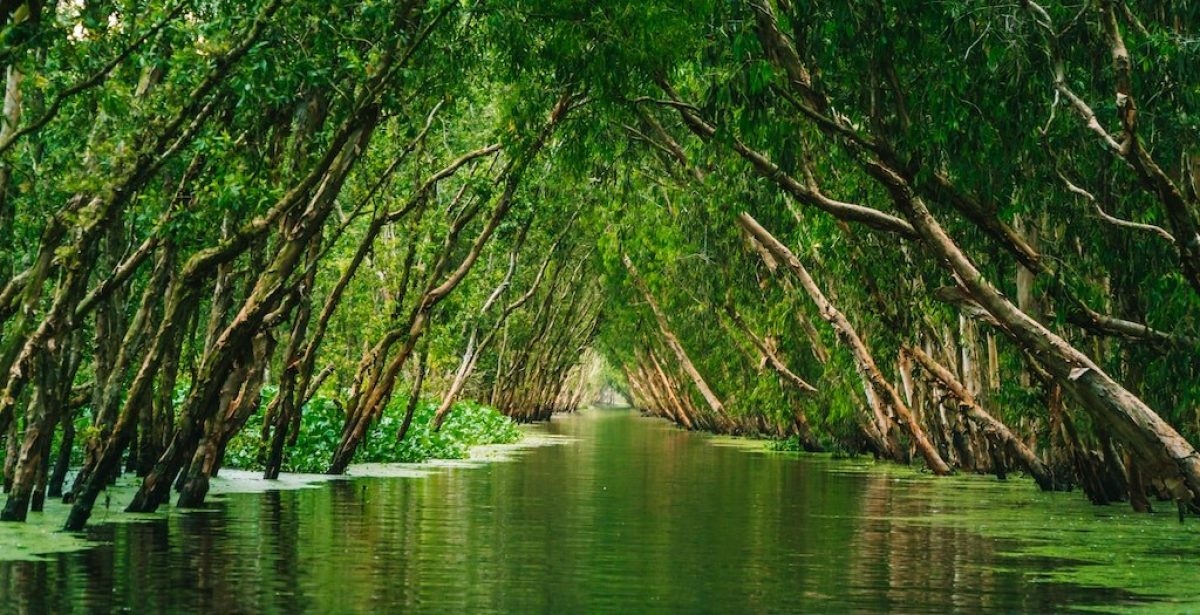Comments
- No comments found

Eco-tourism has recently become a major trend in travel, driven by increasing awareness of sustainable practices.
As environmental concerns continue to rise, more people are seeking travel experiences that minimize their impact on the planet and support the conservation of natural resources. Eco-tourism, often defined as responsible travel to natural areas that conserves the environment and improves the well-being of local communities, offers a compelling way for adventurers to explore the world while making a positive contribution to its preservation.
The rise of eco-tourism is not just about choosing greener travel options; it represents a fundamental shift in how we view our role as global citizens. By prioritizing sustainability, eco-tourists aim to leave a smaller carbon footprint, respect local cultures and ecosystems, and contribute to the economic development of the destinations they visit. This approach to travel encourages deeper, more meaningful connections with nature and local communities, fostering a sense of responsibility and stewardship that extends beyond the journey itself. As more travelers embrace eco-tourism, the movement has the potential to transform the travel industry, making it a force for environmental conservation and cultural preservation.
Eco-tourism is a form of travel that focuses on visiting natural areas with the intent to conserve the environment, respect local cultures, and promote sustainable practices. Unlike traditional tourism, which often prioritizes convenience and entertainment, eco-tourism emphasizes education and ethical travel. It seeks to minimize the negative impacts of tourism while maximizing its benefits for the environment and local communities.
Key principles of eco-tourism include minimizing environmental impact, building environmental and cultural awareness, providing direct financial benefits for conservation, and empowering local communities. By adhering to these principles, eco-tourism helps ensure that travel destinations remain unspoiled and vibrant for future generations. This sustainable approach is crucial as it balances the need for economic development with the imperative of environmental protection.

Eco-tourism offers numerous benefits that extend beyond individual travelers to encompass the broader environment and society:
Environmental Benefits: One of the primary advantages of eco-tourism is its focus on conservation. Eco-tourism activities often include efforts to protect natural habitats, wildlife, and ecosystems. By participating in eco-friendly practices, tourists can help preserve biodiversity and reduce their environmental footprint, contributing to the long-term sustainability of natural areas.
Economic Benefits: Eco-tourism can provide significant economic benefits to local communities. By choosing locally owned accommodations, restaurants, and tour operators, eco-tourists ensure that their spending directly supports the local economy. This financial influx can help communities invest in sustainable practices and improve their quality of life, fostering economic resilience and reducing poverty.
Social Benefits: Beyond environmental and economic advantages, eco-tourism also promotes cultural exchange and preservation. By engaging with local communities, travelers can learn about different cultures and traditions, fostering mutual understanding and respect. Additionally, eco-tourism often encourages the preservation of cultural heritage, as it provides an incentive for communities to maintain their traditions and customs for future generations.
For those interested in eco-tourism, there are several practical steps to ensure a responsible and sustainable travel experience:
Choosing Eco-Friendly Accommodations and Tour Operators: Research and select accommodations and tour operators that prioritize sustainability. Look for certifications from recognized organizations that indicate a commitment to environmental and social responsibility. Many eco-friendly lodges and hotels use renewable energy, practice water conservation, and support local communities.
Minimizing Waste and Reducing Your Carbon Footprint: Travelers can significantly reduce their environmental impact by minimizing waste and carbon emissions. Opt for reusable water bottles, bags, and utensils to cut down on single-use plastics. Additionally, consider using public transportation, biking, or walking instead of renting a car. For longer trips, choose direct flights when possible to reduce your carbon footprint.
Respecting Local Cultures and Customs: An essential aspect of eco-tourism is respecting the local culture and customs of the places you visit. Learn about the cultural norms and practices of your destination before you go, and be mindful of your behavior to ensure it aligns with local expectations. Show respect for local communities by supporting their businesses and participating in cultural activities in a sensitive and respectful manner.
Participating in Conservation Efforts and Volunteering: Many eco-tourism destinations offer opportunities for travelers to get involved in conservation efforts, such as tree planting, wildlife monitoring, or beach clean-ups. Volunteering your time and skills can provide valuable support for local conservation projects and deepen your connection to the destination.
Eco-tourism has gained popularity across the globe, with numerous destinations offering unique experiences that emphasize sustainability and conservation:
Key West, Florida: One of the top eco-tourism destinations in the United States, Key West offers a variety of eco-friendly activities, including Key West kayak tours through its extensive mangrove forests. These guided tours provide a low-impact way to explore the unique ecosystem of the Florida Keys, allowing travelers to observe diverse marine life and learn about the importance of mangroves in protecting coastal areas from erosion and supporting biodiversity.
Other Notable Eco-Tourism Hotspots: Destinations such as Costa Rica, known for its extensive national parks and wildlife reserves, New Zealand with its commitment to conservation and sustainable practices, and Iceland, where travelers can experience the wonders of geothermal energy and pristine landscapes, are also popular among eco-tourists. Each of these destinations offers unique opportunities to engage with nature and learn about sustainable living practices.
Despite its many benefits, eco-tourism is not without its challenges and criticisms:
Potential Negative Impacts if Not Managed Properly: If not managed correctly, eco-tourism can have adverse effects on the environment and local communities. Over-tourism in fragile areas can lead to habitat destruction, pollution, and displacement of local populations. It is crucial for eco-tourism operators and travelers to adhere to sustainable practices to mitigate these risks.
The Risk of "Greenwashing" in the Travel Industry: As eco-tourism becomes more popular, some companies may engage in "greenwashing" — misleading consumers into believing that their practices are more environmentally friendly than they are. Travelers should be vigilant in researching and choosing genuinely sustainable options to avoid supporting companies that prioritize profits over the planet.
Balancing Tourism with Conservation Efforts: Striking the right balance between promoting tourism and conserving natural resources is a constant challenge in eco-tourism. It is essential to implement policies and practices that ensure tourism activities do not compromise the health and integrity of natural ecosystems.

Looking ahead, eco-tourism is poised to play a crucial role in promoting global sustainability:
Emerging Trends and Innovations in Sustainable Travel: As technology advances, new tools and innovations are emerging to support sustainable travel. From carbon offset programs to digital platforms that connect eco-tourists with local conservation projects, these innovations are helping to make responsible travel more accessible and impactful.
The Role of Technology and Policy in Promoting Eco-Tourism: Governments and organizations around the world are increasingly recognizing the importance of eco-tourism and implementing policies to support its growth. By investing in sustainable infrastructure, providing incentives for eco-friendly businesses, and raising awareness about the benefits of eco-tourism, policymakers can help create a more sustainable future for travel.
The Potential for Eco-Tourism to Lead the Way in Global Sustainability: As the demand for eco-tourism continues to grow, the industry has the potential to lead by example in promoting sustainable practices. By prioritizing environmental and social responsibility, eco-tourism can inspire other sectors to adopt more sustainable approaches, ultimately contributing to a more sustainable and equitable world.
As we face the urgent challenges of climate change and environmental degradation, the role of eco-tourism in promoting sustainable travel practices has never been more critical. By choosing to travel responsibly, eco-tourists can enjoy unique and enriching experiences while supporting conservation efforts and contributing to the well-being of local communities. This mindful approach to travel not only helps protect our planet for future generations but also enriches the lives of those who embark on these journeys.
Eco-tourism is more than a trend; it is a movement towards a more sustainable and ethical way of exploring the world. By embracing this ethos, travelers can make a significant impact on preserving the natural and cultural treasures of our planet. As the demand for eco-friendly travel continues to grow, it is essential for the travel industry to prioritize sustainability, ensuring that the benefits of tourism are shared equitably and that the negative impacts are minimized. Together, we can create a future where travel not only broadens our horizons but also contributes to the health and vitality of our planet.
This article should provide a comprehensive look at eco-tourism and offer readers practical advice on how to travel responsibly. With the inclusion of specific destinations like Key West, it also gives tangible examples of eco-tourism in action.
Leave your comments
Post comment as a guest